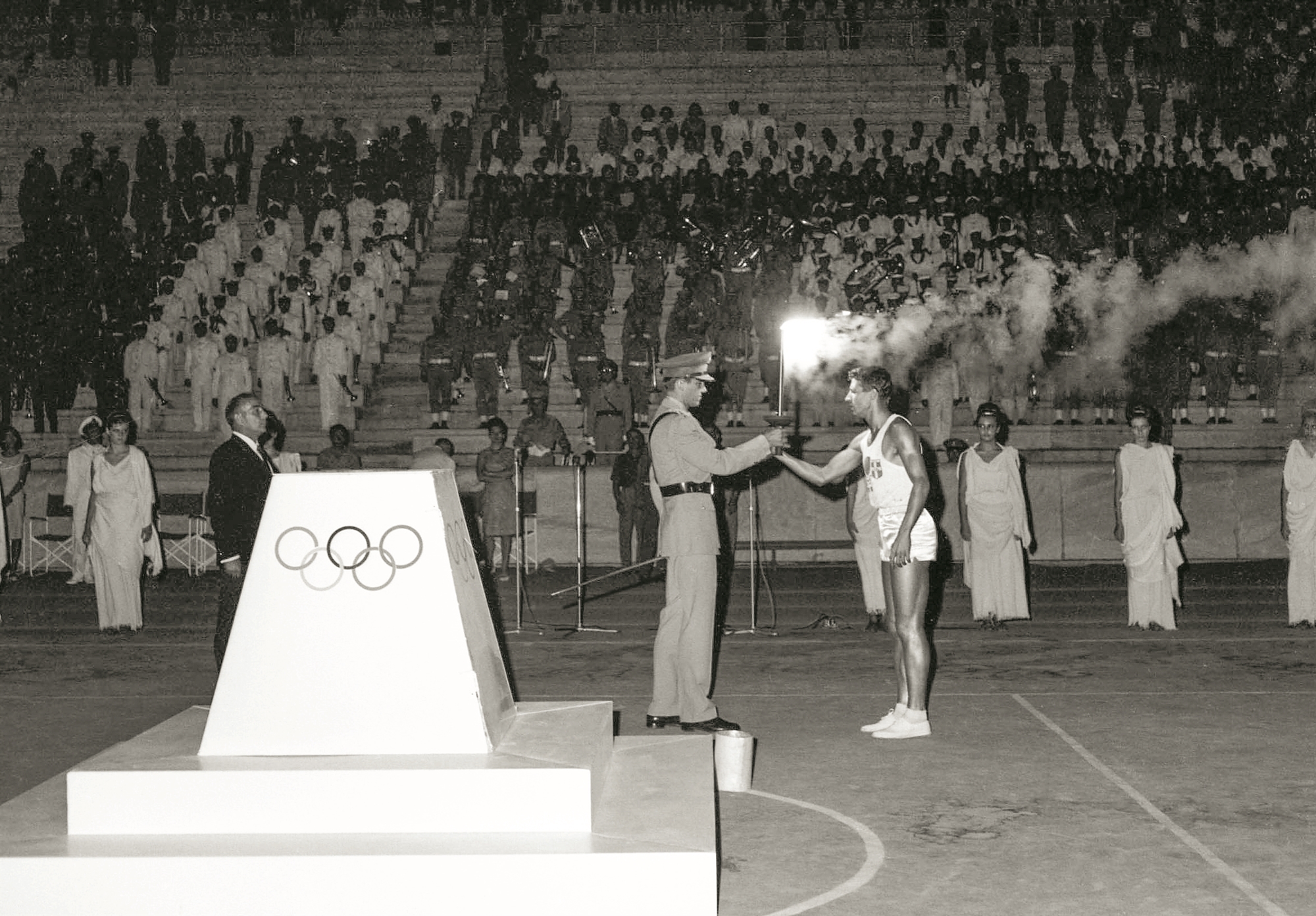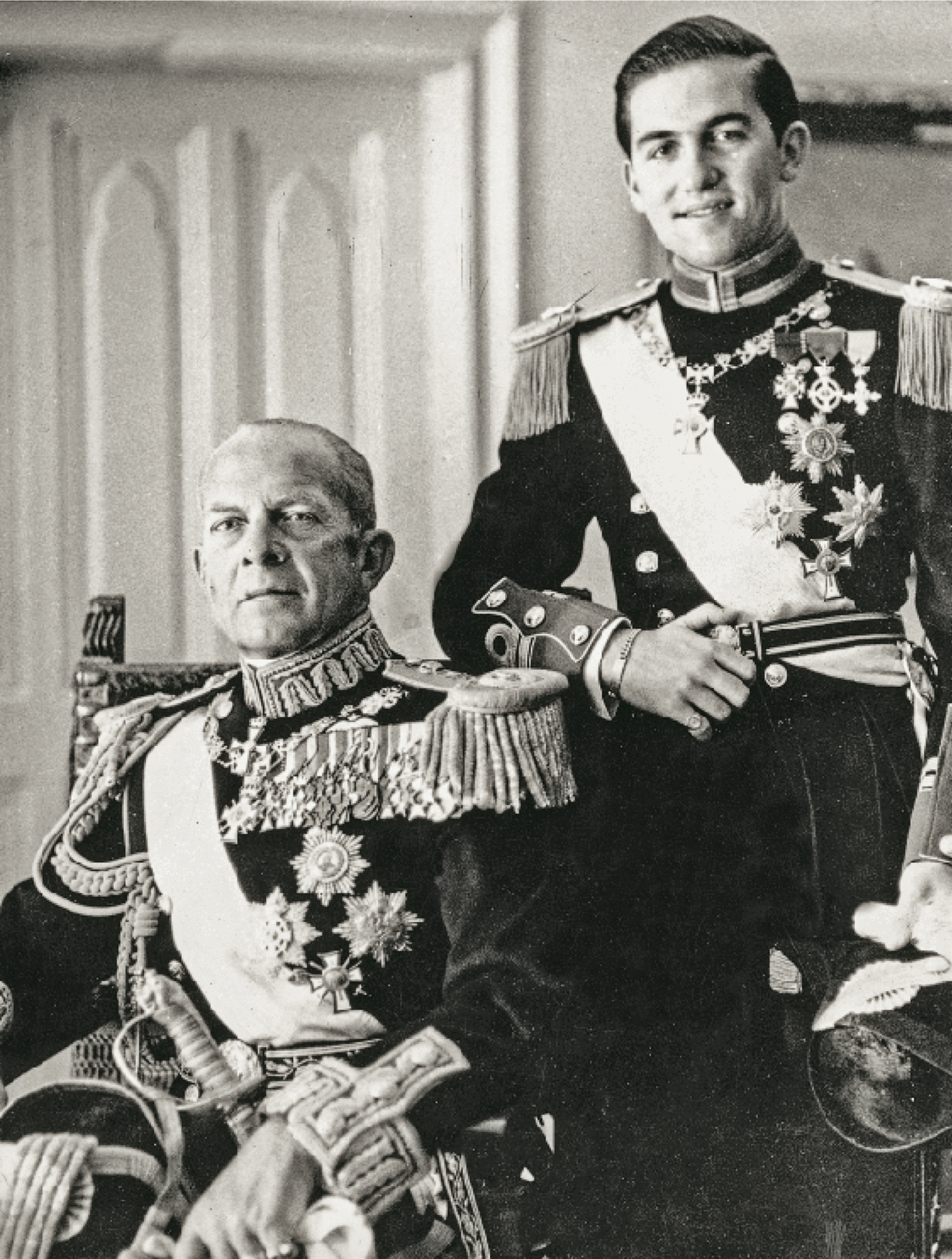Constantine II: School, military training and athletic achievements

Constantine attended the elite Anavryta Classical Lyceum, Greece’s first Western-style, boys-only boarding school, which was founded in 1940 and re-established for the 1949-50 academic year with the express purpose of ensuring that the heir to the Greek throne received a “proper” education.
The crown prince’s athletic prowess and zeal for seizing the initiative – a trait that would later strain his political relationships – were likely cultivated at the school, where 30% of the boys were scholarship pupils from all walks of life.
Constantine admitted that he preferred sports to studying, and especially hockey, volleyball and the high jump. Popular and affable, he enjoyed the camaraderie at the school and kept in touch with many of his fellow pupils for years to come. He also took part in school plays, including Shakespeare’s “Julius Caesar,” which he often quoted later on in life.
‘I was very naughty. I remember getting into a fight with another boy and they tied us both to a tree’
Pupils at the Anavryta Lyceum were required to do military-style exercises during the weekends in their last two years of school. “We’d go rock climbing at Lake Vouliagmeni, tossing ropes from one side to the other, we’d dive into the sea, we were given guns, and they’d shoot over our heads,” Constantine once told Alexis Papachelas in an interview. “I was very naughty. I remember getting into a fight with another boy and they tied us both to a tree.”
Special forces
The crown prince’s military training proper began after graduation. As heir to the throne, he served in all three branches of the Armed Forces, attending the requisite academies. His first stint was in Attica, starting with the Special Forces at Megalo Pefko and then training with the cadets of the Evelpidon Military Academy at Agios Andreas, before he was posted to the 5th Command in Macedonia, northern Greece. When he turned 18, he took his oath at all three academies. Decades later, he would recount the longest march he did as a commando. It was 17.5 hours long and stretched from Proti, the small Serres hometown of Konstantinos Karamanlis, the man his father, King Paul, named prime minister in 1955 and who in 1974 called the referendum that stopped Constantine from returning to Greece and reclaiming the throne after the military dictatorship stripped the monarchy of its powers. Looking back, that long march was full of bad omens. “Even the mules we had taken along collapsed. Nobody could get their socks off after the march; they had fused to our feet,” he recalled. On the athletic front, Constantine competed in the Rome Olympics in September 1960 at the age of 20, taking the gold in the Dragon Class with the national sailing team in the regatta in the Gulf of Naples. It was Greece’s first Olympic gold medal since 1912 and widely celebrated in the press at the time.
Another important chapter in the heir’s personal life concerned rumors about a romantic involvement with actress Aliki Vougiouklaki. The rumors may have not been entirely baseless, given that composer Manos Hadjidakis had once divulged that Constantine had asked to meet him secretly to “talk about Aliki.” The meeting took place a pastry shop in the central Athens neighborhood of Pangrati, just a short walk from the royal palace. It has been said that his mother, Frederica, made sure that nothing came of the romance.


This is the second of a four-part series on Greece’s former king Constantine II, who died on Tuesday night, aged 82.





